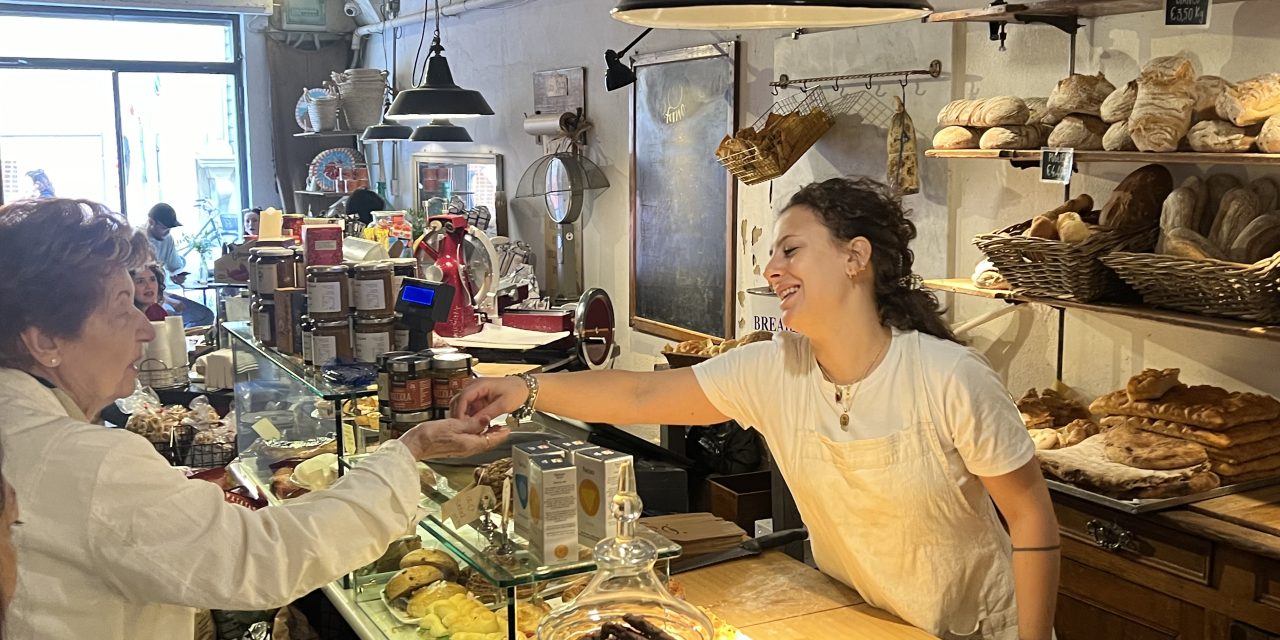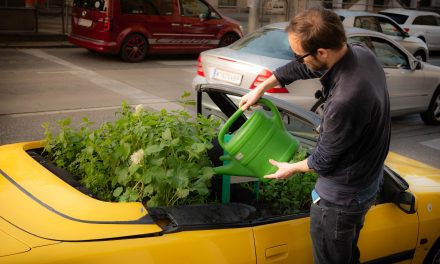In the early morning hours, while most of Florence sleeps, the bakers at S.Forno Panificio are just beginning their day, preserving a culinary tradition that dates back centuries. The smell of fresh baked bread, the soft glow of the bakery, and the dedication of these artisans highlight a deep-seated commitment to maintaining the legacy of saltless Tuscan bread, or “pane Toscano.” Despite modern culinary trends and economic pressures, their dedication keeps this unique tradition alive, which seems to foster a huge sense of pride.
Pane Toscano or otherwise known as traditional Tuscan bread is one of the most elemental pieces of Italy’s cuisines according to a group of people spoken too. Unlike most bread, it is made without salt, giving it a distinct, mild flavor that pairs perfectly with the salty dishes of that region. According to Francesca Govoni, manager at S.Forno Panificio, the process of making the bread is as traditional as it gets. “So the bakers work at night.” Govoni says.“They start at maybe one, two in the morning and they work until five, six. And the production, the production, it would be just one a day. And night is for the bakers and during the day is for the pastry chef.” With the hours being Monday through Friday, this bakery shows the true dedication on everyones part, in order to keep this tradition alive.
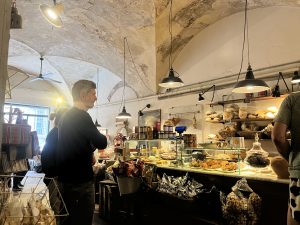
Govoni’s bakery, located on Via Santa Monica, is one of the last places in Florence that still produces bread inside the city walls. Beyond the creation of the bread, even the building stands as a testament to the true connection to its past. Reflectiong on the bakery’s long-standing place in the community, Govoni shares a sentimental fun fact about the past and history of the establishment that brings a smile to her face. “Our bakery has been a part of the community for over a hundred years,” Govoni says. “In the 50’s people, especially on Sundays, would take their meat roast and cook everything inside our unique oven here. It became a place where people gather before their Sunday lunch to cook and talk to each other. So this spirit, it is still there.” This community spirit is very evident to anyone that enters the building.
Over the years, the bakery has become more than just a place to buy bread. It has evolved into a social place where people come to connect and enjoy each other company. As you step inside S.Forno Panificio, the warm, comforting aroma of fresh bread envelops you, mixing with the scent of fresh coffee. The subtle murmur of conversation blends with the sound of clinking cups. At the counter, the ladies greet each customer with a smile and engage in friendly banter as they serve loaves of Pane Toscano. “Here, many of them (locals) still come and have a place where they can sit and have a nice chat with the ladies at the counter.” Govoni said with a smile on her face. With the sounds of laughter in the air and smiles on everyone’s faces, it is very evident that this bakery is a place of community – a testament to the social aspect Tuscan bread has brought to the people of Florence.
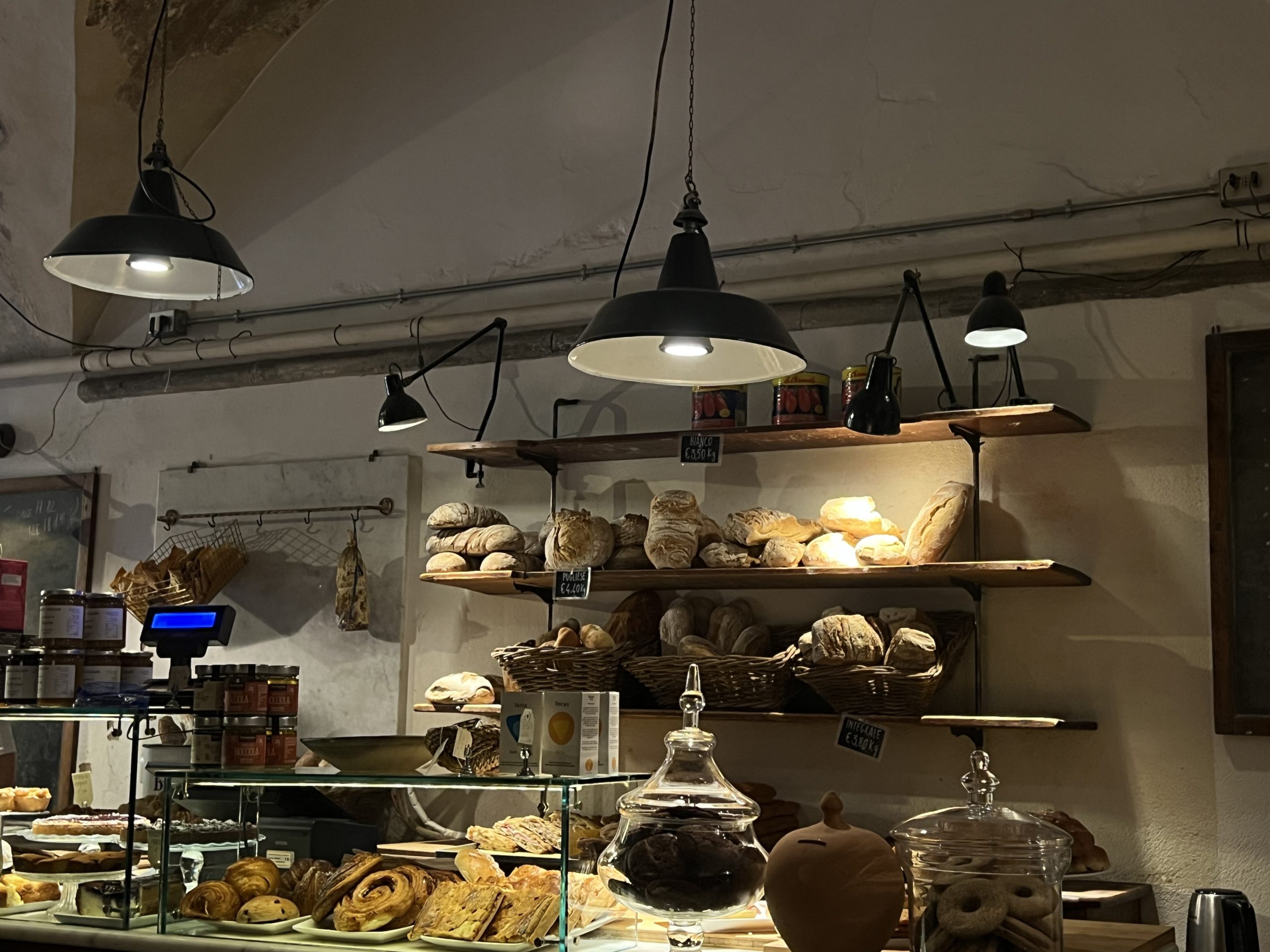

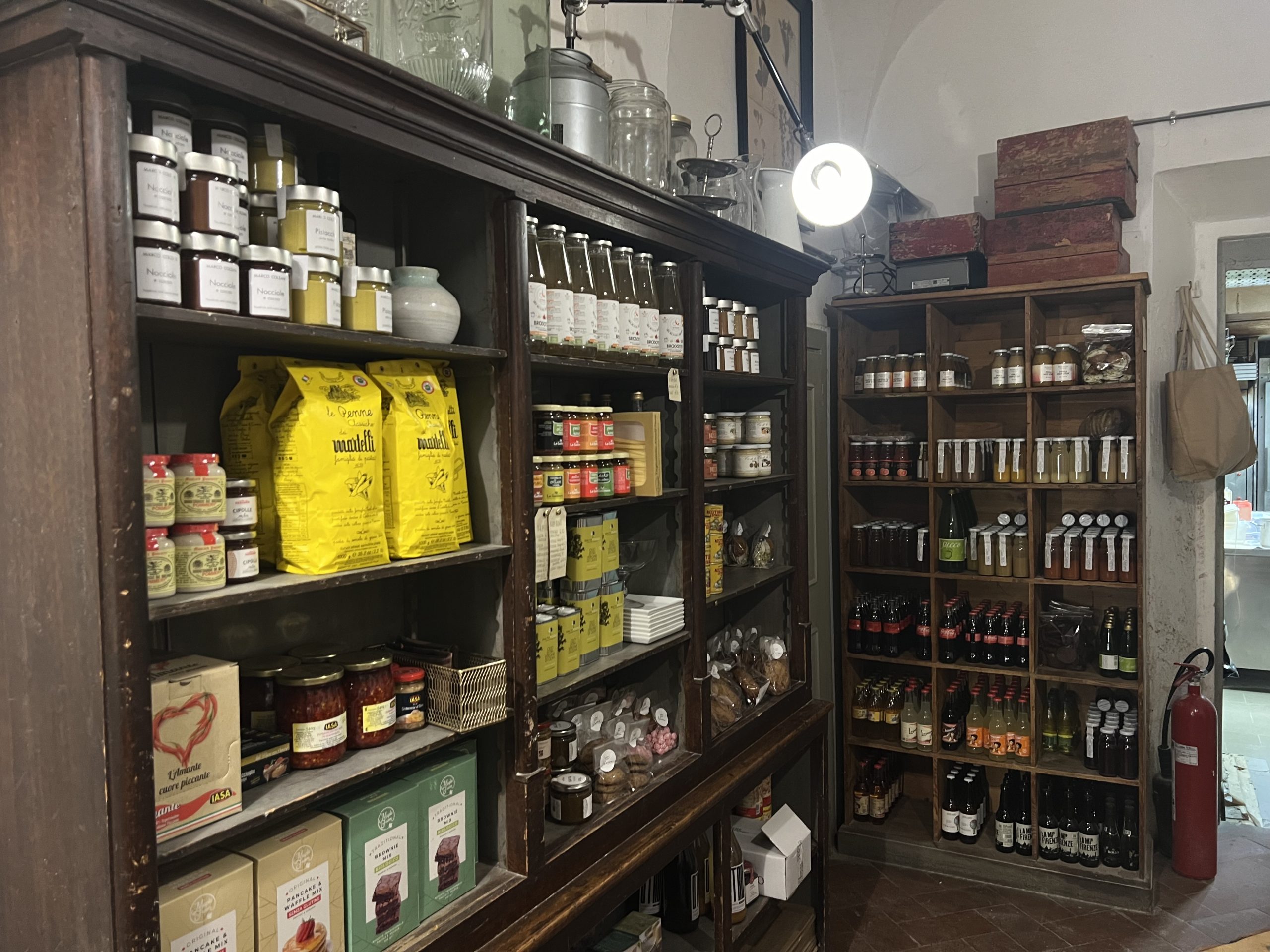
However, maintaining this tradition is not without its challenges. Contemporary culinary trends and influences from all around the world can tempt even the most steadfast of traditions. Andrea Silei, a sandwich shop owner and chef of Fermentino located in Florence, represents the intersection of old and new. “In my shop, we use traditional Pane Toscano for our sandwiches, which brings a unique flavor to our offerings.” Silei says. “At the same time, we experiment with different fillings and combinations to keep things fresh and exciting for our customers.”
Silei’s approach reflects a broader trend in Florence, where bakers and chefs strive to honor the past while appealing to modern palates. A trend that can be a slippery slope. Yet, his commitment to tradition is still unwavering. “I keep the traditional things, not too innovative, so I don’t get out of hand.” Selei says. This philosophy ensures that while his shop offers new and exciting options, it never strays too far from its roots.
Many Florentine bakers are finding ways to innovate within the framework of tradition. Some experiment with the bread itself or the process of making the bread, introducing new techniques that enhance the texture or flavor of the bread without changing the overall essence of it. Keeping the base that has been the very same for so many centuries. Others, like Silei, focus on innovative uses of the bread, creating new dishes that might appeal to both tourists and locals. This delicate balance of innovation and tradition lets the culinary heritage of Tuscany maintain its core identity while evolving at the same time.
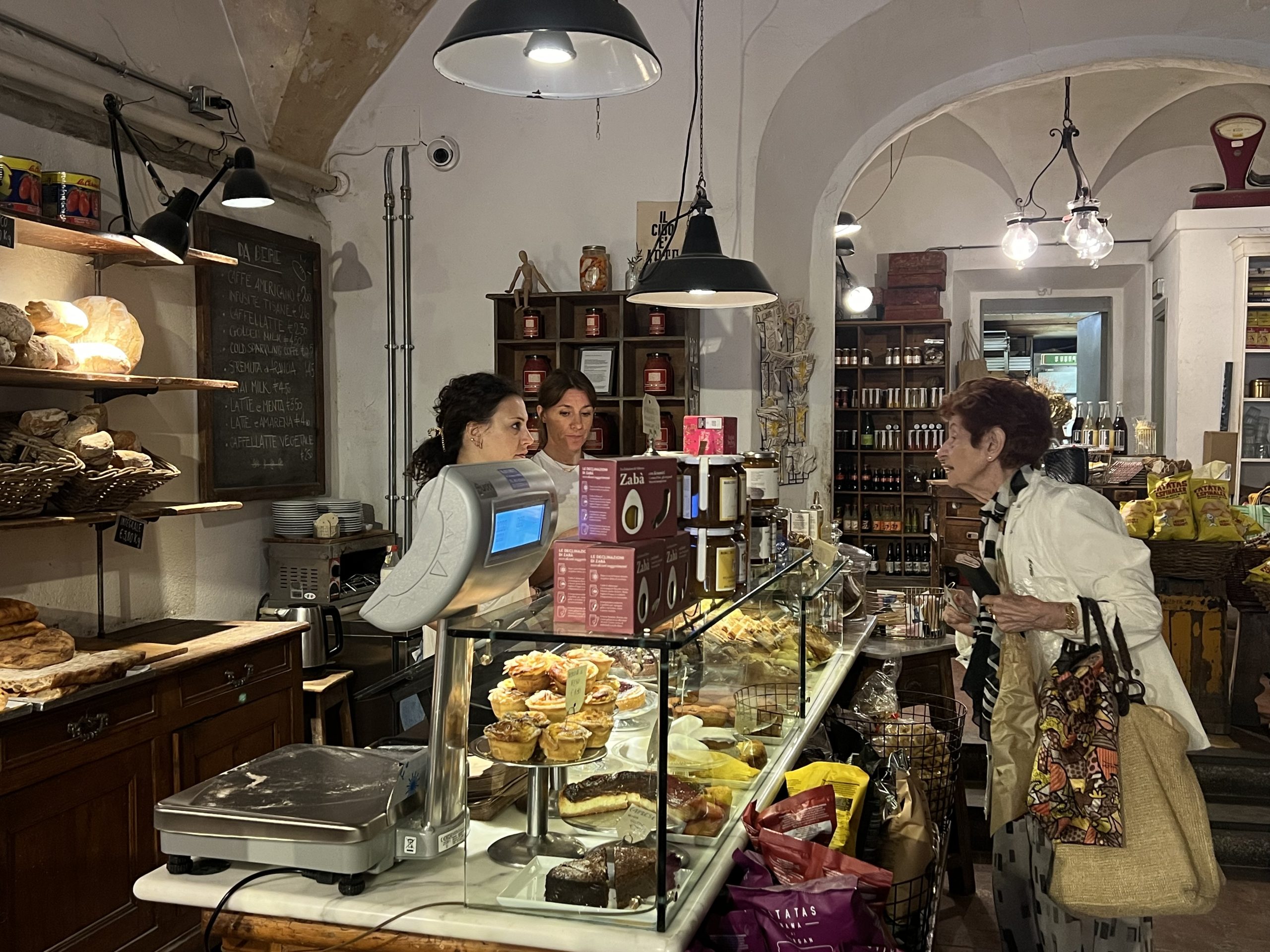
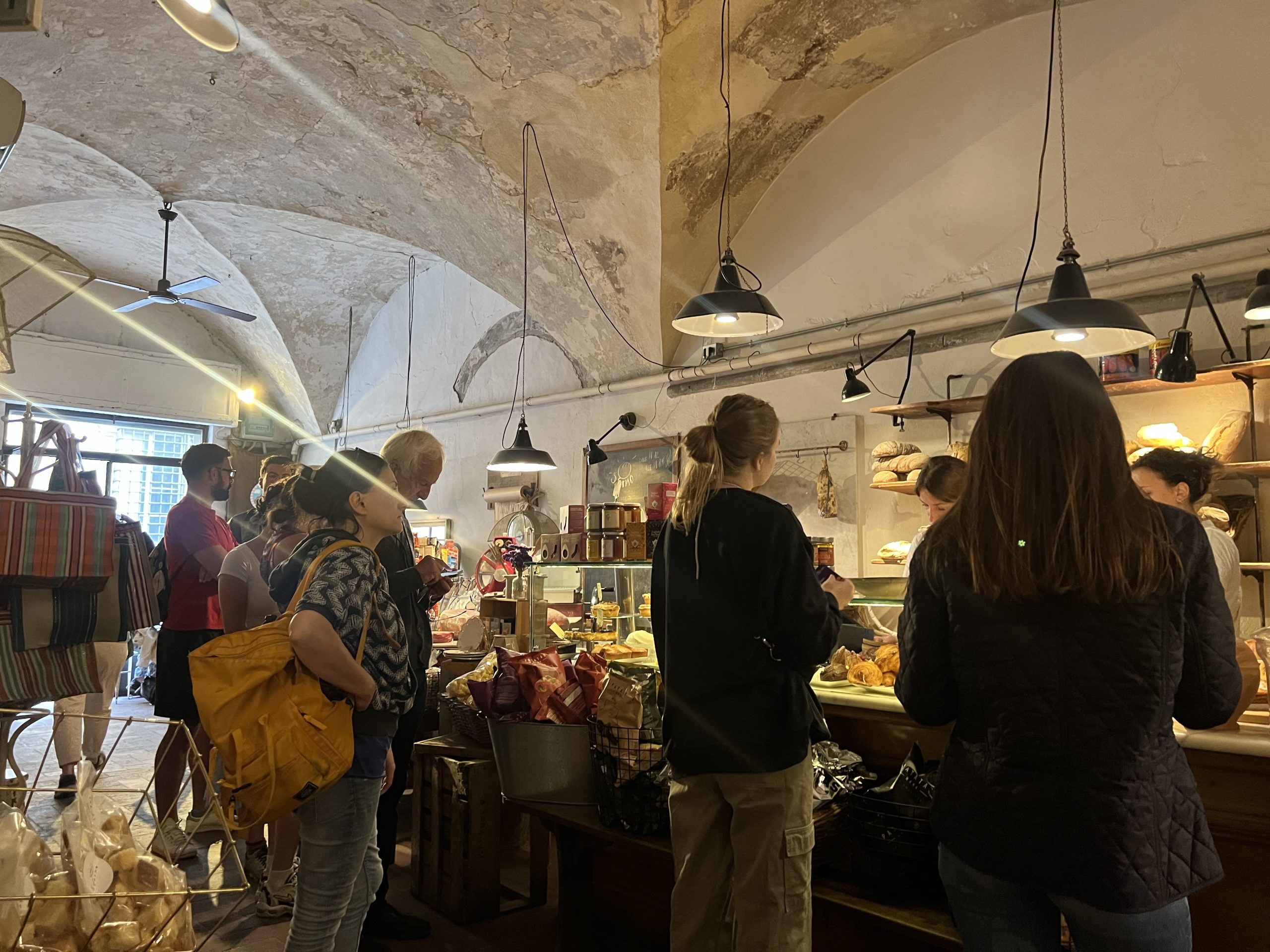

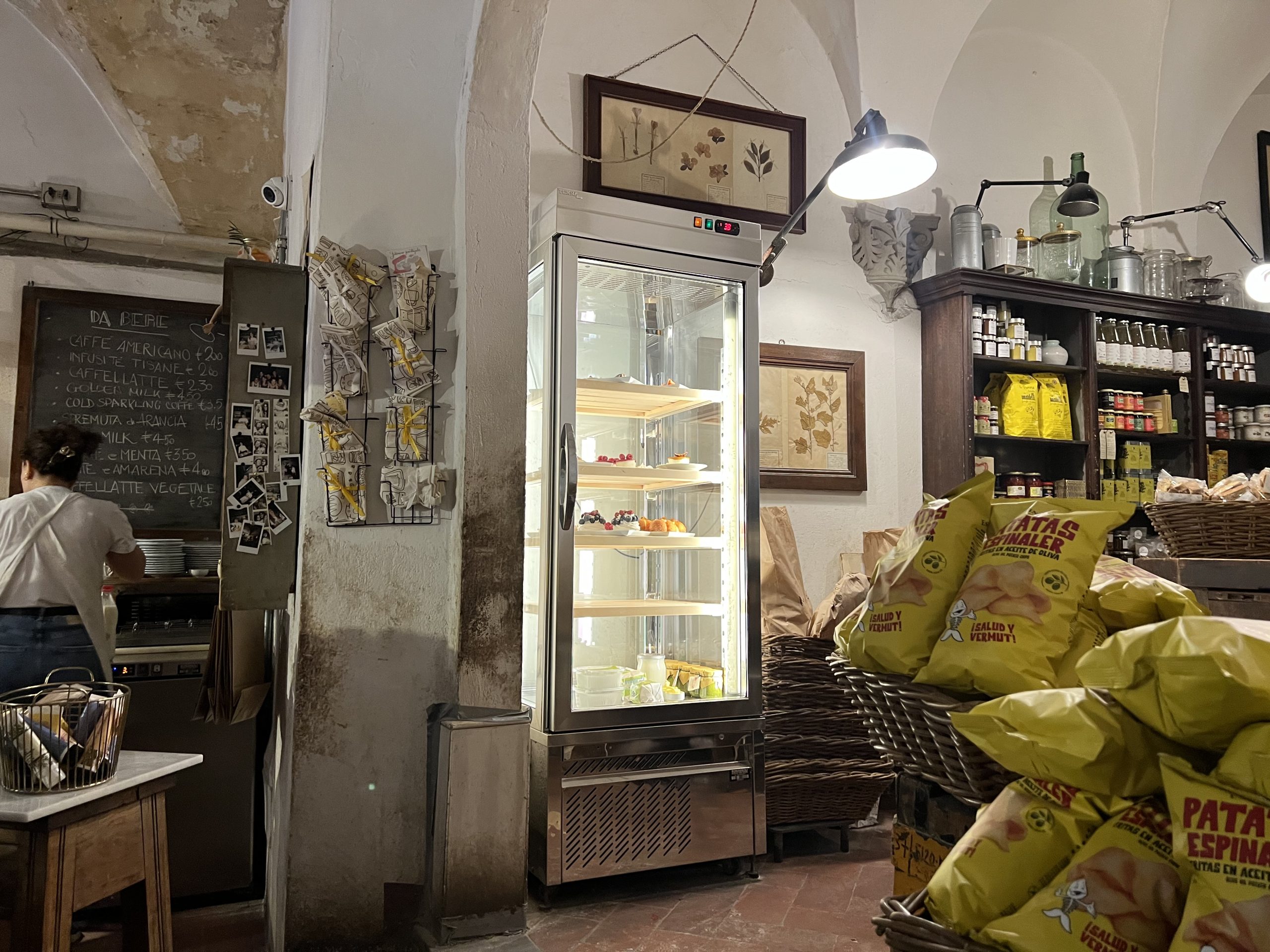
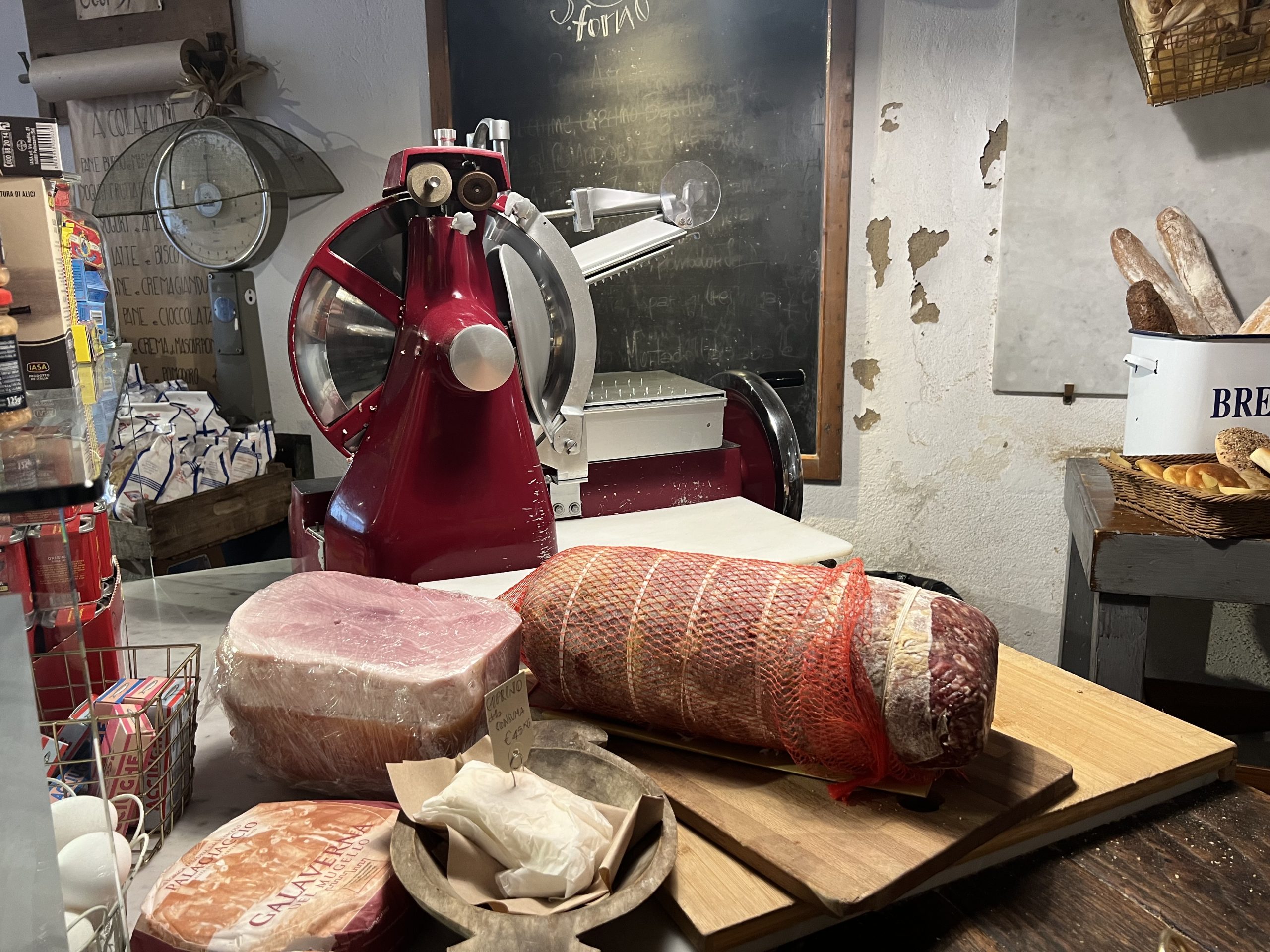
The preservation of saltless bread and other Tuscan culinary traditions is an ongoing effort. It involves dedication from not only the bakers who are committed to keeping the practice alive, but to the locals and tourists in Florence who have to continue to support their efforts. Workers in the industry like Govoni and Silei, along with many others in the community, show how they strive to maintain this tradition and help to pass it along to the next generation.
The challenges are many. There is a sense of pressure to create new products to appeal to a broader audience while also ensuring that these traditional methods and recipes are not lost. Additionally, there is also the economic challenge of keeping the small family owned bakeries and restaurants afloat against the large commercial operations that don’t always seem to value the same traditions. Also according to the Rome Buisness Schools’s report on the Italian food sector, contemporary culinary trends like the demand for sustainable and locally sourced products and the rise in home cooked meals post-pandemic add more pressure. In 2021, 73% of Italian consumers saw their food purchases as a social commitment, valuing quality and authenticity, which traditional bakeries strive to maintain regardless of these economic challenges.
Despite these challenges, the community of bakers and industry workers remain resilient and continue to fight for their traditions. They believe that preserving these traditions is not simply about maintaining a business; it’s about passing down a piece of their culture and heritage to future generations.
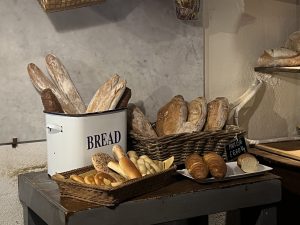
Barbara Bettellini, a professor of Italian cuisine, emphasizes the importance of maintaining these practices. “If you ask how to make a carbonara to two people living in the same block of flats, they would probably have two different ways of cooking it, because it depends on everything – who the dish was cooked by, you know, their mothers and grandmothers and so on.” she says. This sentiment shows captures the essence of why maintaining traditional methods matters – it preseres the all the unique and different varieties and flavors that define a regions culinary identity.
Bettelini also explains the historical depth of italian cuisine, saying, “history has had a very, very strong impact on italian cuisine.” This deep historical influence shows in every tradition they carry in their day to day lives, and in this case, saltless bread. But with this tradition comes a responsibility. A responsibility to carry it to the next generation, like their ancestors did for them.
Govoni, Bettellini, and Silei all express the importance of carrying on this tradition of saltless bread to the next generation in order to preserve it. This involves not only teaching them the techniques of baking but also instilling in them an appreciation for these traditions and all the traditions that come with it. “I think the best way of preservation is to teach young bakers how to cook.” Says Govoni. “ So, to keep it traditional.”.
This approach shows the true dedication they have for securing their traditions and preserving their culture for future generations.
By engaging with young bakers, these people are helping to create a new appreciation for traditional methods. Their mentorships go beyond just baking – it also means understanding the stories, the community connections, and the historical significance of every loaf of pane toscano that they are making.
In Florence, the tradition of saltless bread is more than a culinary custom; it is a way of life that connects the people to their community and to their history. While modern challenges constantly test this balance, they seem to persevere. Even with the influx of culinary tourism, locals prefer the presence of Govonis bakery because of the authenticity of not only the bread but also the atmosphere. “ the demand of tuscan bread is high, especially among tuscan people.” Govoni says. This demand for the bread is not merely about taste; it is about community and preserving a slice of Florentine identity.
The balancing act between tradition and innovation is evident in the daily lives of Florence’s residents. For many, buying their daily load of bread is more than a routine – it is a ritual that connects them to their roots. “This is a neighborhood shop. There are many tourists, but still the old lady is coming every morning to buy her loaf.” This is a testament to the power of tradition in the face of modernity.
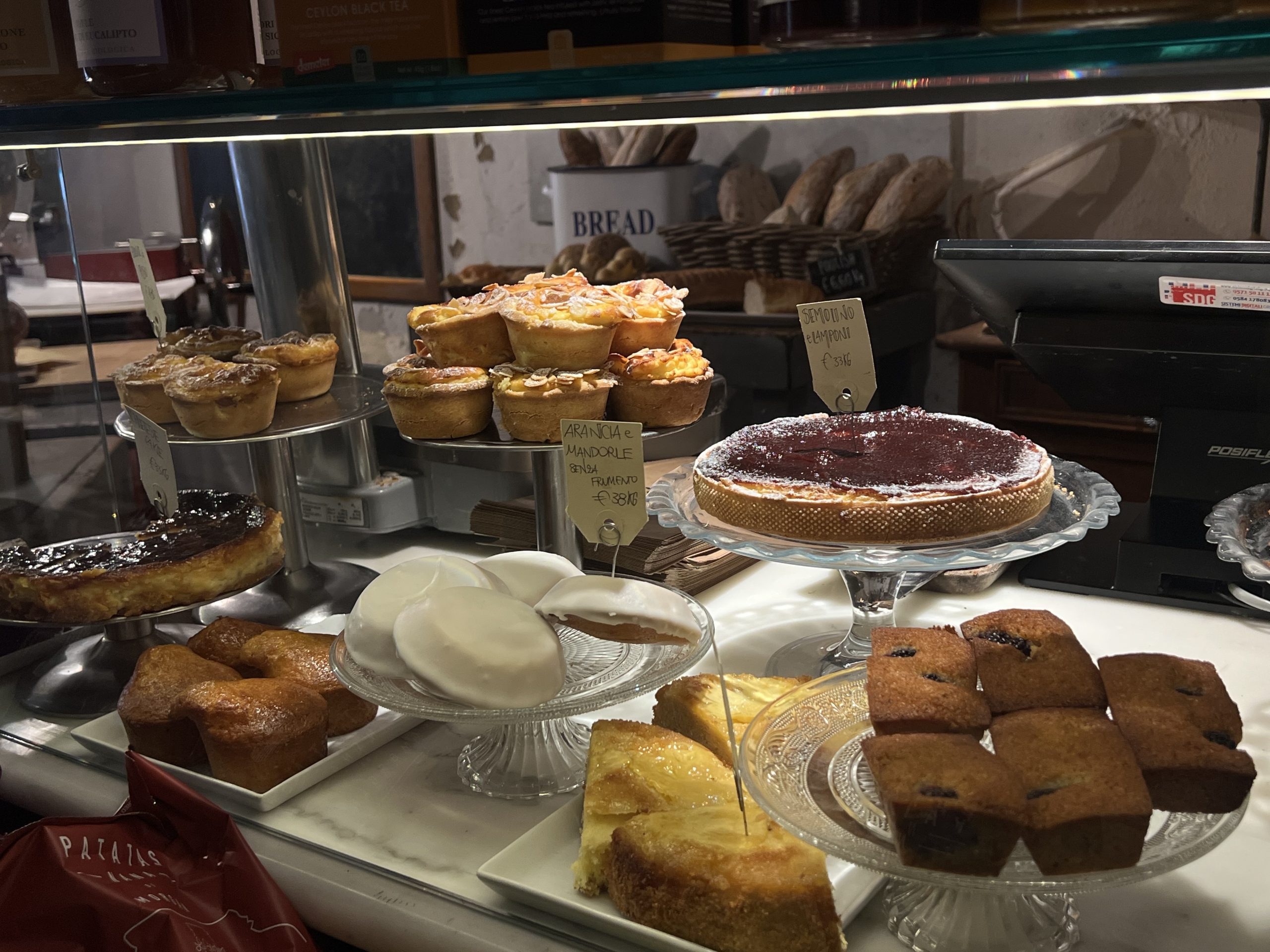
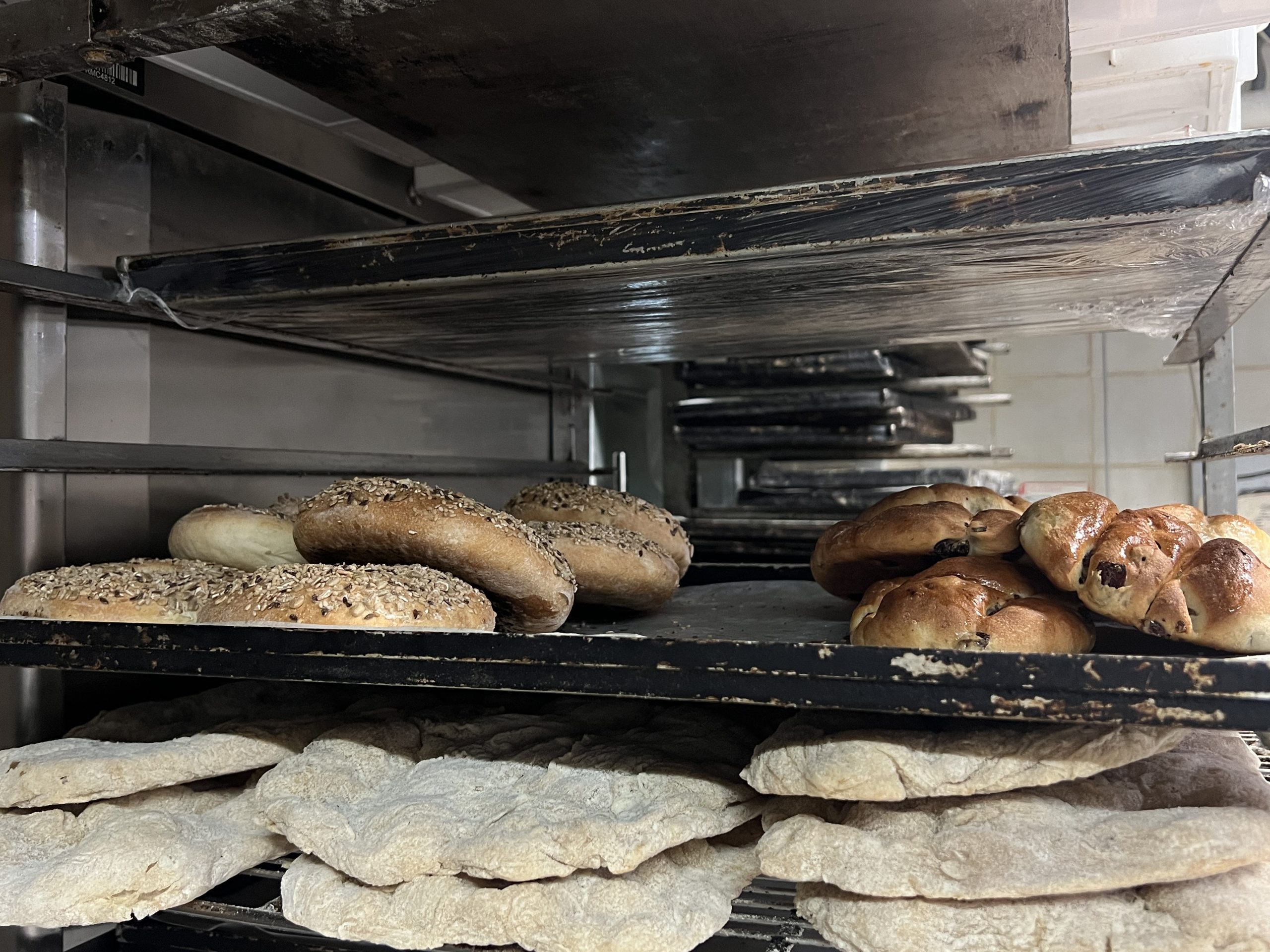
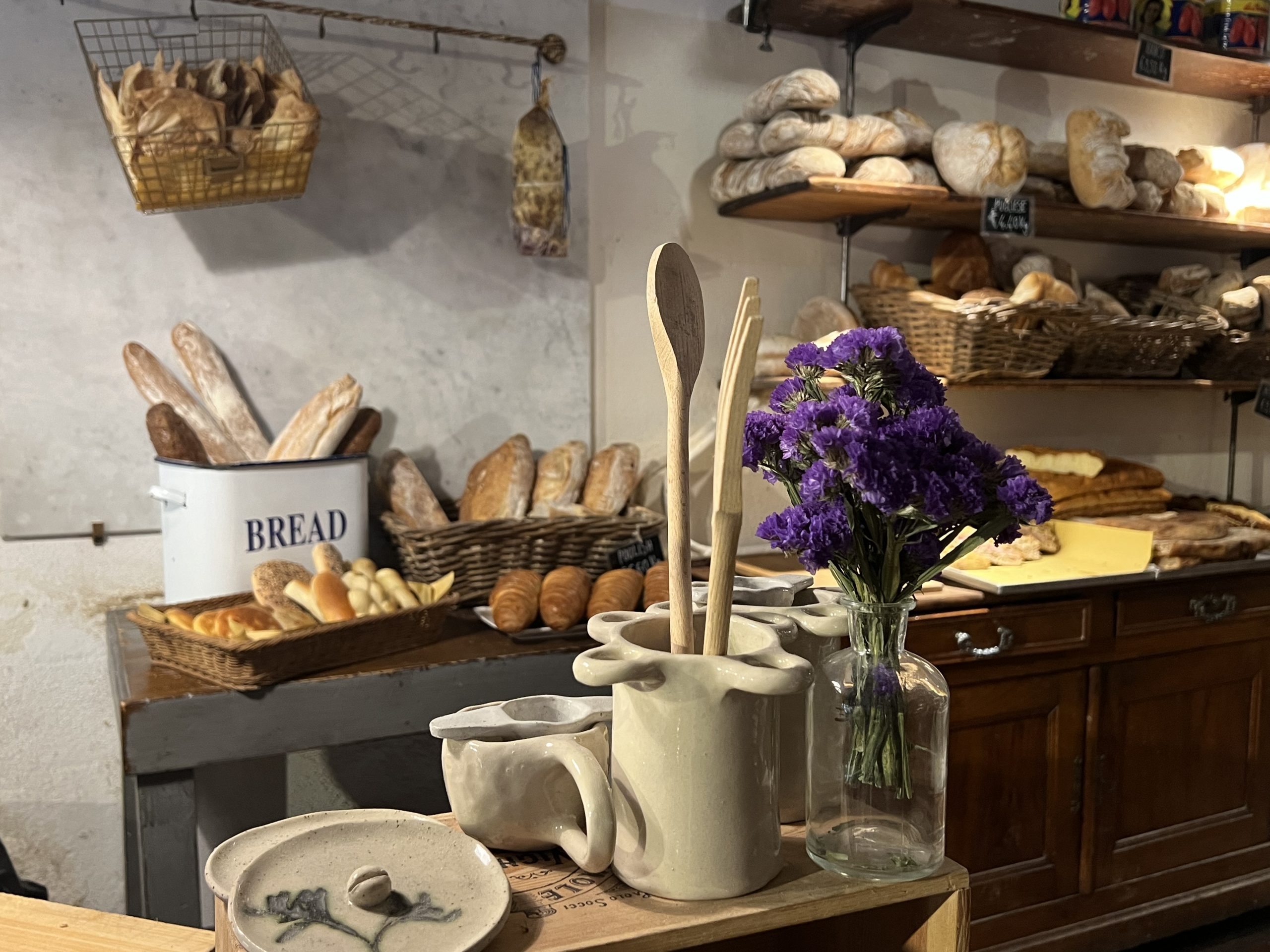


In the end, the story of traditional saltless tuscan bread is one of resilience and dedication. It’s not just about baking bread; it’s about keeping community, history, and culture alive. The bakers and industry workers work every day to show what it means to stay connected and committed to their heritage, making sure every loaf of Pane Toscano tells a piece of Florence’s story.
Even as Florence evolves and as does the world around it, these traditions provide a comforting link to the past and are kept alive every day. This is made possible by the bakers that work throughout the night, locals that gather for their daily bread, and the young bakers that learn the ropes in order to keep the legacy going strong.
The tradition of saltless bread is more than just a recipe; It is a testament to the spirit of florence. It blends history and innovation at the same time, where each bite connects you to the generations of bakers that have fought to keep the tradition alive. With new bakers and chefs coming up, the essence of Pane Toscano remains very vibrant, ensuring Florence’s rich culture stays alive and well. In balancing the old and the new, the tradition stands as a symbol of the city’s enduring soul.
